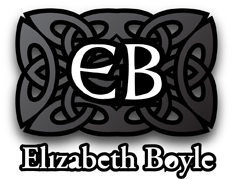Category Archives: Cultural History
History and Salvation in Medieval Ireland
8 April 2021 | 10:42 am
Elizabeth Boyle, History and Salvation in Medieval Ireland (Routledge, 2021), uncorrected proofs.
‘The Twelfth-Century English Transmission of a Poem on the Threefold Division of the Mind, Attributed to Patrick of Dublin (d. 1084)’
25 February 2020 | 4:51 pm
‘The Twelfth-Century English Transmission of a Poem on the Threefold Division of the Mind, Attributed to Patrick of Dublin (d. 1084)’, in ‘A fantastic and abstruse Latinity’? Hiberno-Continental Cultural and Literary Interactions in the MiddleAges, ed. Wolfram R. Keller & Dagmar Schlüter, Studien und Texte zur Keltologie (Münster: Nodus Publikationen, 2017), pp. 102-16
Aspects of Philosophical Discourse in Eleventh- and Twelfth-Century Ireland: Metaphor, Morality and the Mind
25 February 2020 | 4:22 pm
‘Aspects of Philosophical Discourse in Eleventh- and Twelfth-Century Ireland: Metaphor, Morality and the Mind’, in Philosophy in Ireland: Past Actualities and Present Challenges, ed. Susan Gottlöber (Cambridge Scholars Press: Newcastle, 2019), pp. 2-26
Eschatology and Reform in Early Irish Law: the Evidence of Sunday Legislation
25 February 2020 | 2:57 pm
Uncorrected proofs of ‘Eschatology and Reform in Early Irish Law: the Evidence of Sunday Legislation’, in Apocalypse and Reform from Late Antiquity to the Middle Ages, ed. Matthew Gabriele and James T. Palmer (Abingdon: Routledge, 2018), pp. 121-38
Allegory, the áes dána and the Liberal Arts in Medieval Irish Literature
5 July 2016 | 12:51 pm
‘Allegory, the áes dána and the Liberal Arts in Medieval Irish Literature’, in Grammatica, Gramadach and Gramadeg: Vernacular Grammar and Grammarians in Medieval Ireland and Wales, ed. Deborah Hayden and Paul Russell (Amsterdam: John Benjamins, 2016), pp. 11-34 The present study briefly considers the vernacular terminology used to describe figurative language in medieval Irish literature, and […]
Senchas Gall Átha Clíath: Aspects of the Cult of St Patrick in the Twelfth Century
5 July 2016 | 12:44 pm
(co-authored with Liam Breatnach), ‘Senchas Gall Átha Clíath: Aspects of the Cult of St Patrick in the Twelfth Century’, in Sacred Histories: A Festschrift for Máire Herbert, ed. J. Carey, K. Murray & C. Ó Dochartaigh (Dublin: Four Courts Press, 2015), pp. 22-55 This Festschrift contribution comprises the first edition, translation and detailed discussion of Senchas […]
The Rhetoric and Reality of Reform in Irish Eschatological Thought, c. 1000 – 1150
5 July 2016 | 12:39 pm
‘The Rhetoric and Reality of Reform in Irish Eschatological Thought, c. 1000 – 1150’, History of Religions 55:3 (2016), 269-88 This essay challenges the ideas that the ‘great fear’ recorded in Irish annals for the year 1096 was the culmination of an escalating rhetoric of apocalypticism, and that it was a trigger for the ecclesiastical reform […]
Lay Morality, Clerical Immorality, and Pilgrimage in Tenth-Century Ireland
4 July 2016 | 12:00 pm
‘Lay Morality, Clerical Immorality, and Pilgrimage in Tenth-Century Ireland: Cethrur Macclérech and Epscop do Gáedelaib’, Studia Hibernica 39 (2013), 9-48 The subject of this essay is a pair of medieval Irish ecclesiastical anecdotes, namely Cethrur macclérech (‘Four Junior Clerics’) and Epscop do Gáedelaib (‘A Bishop of the Gaels’). Insofar as they have received any scholarly attention, these […]
Sacrifice and Salvation in Echtgus Úa Cúanáin’s Poetic Treatise on the Eucharist
4 July 2016 | 11:57 am
‘Sacrifice and Salvation in Echtgus Úa Cúanáin’s Poetic Treatise on the Eucharist’, in Envisioning Christ on the Cross: Ireland and the Early Medieval West, ed. J. Mullins, J. Ní Ghrádaigh & R. Hawtree (Dublin: Four Courts Press, 2013), pp. 181-94 This essay discusses the use of the Passion narrative in Echtgus Úa Cúanáin’s Middle Irish poetic […]
A Welsh Record of an Anglo-Saxon Political Mutilation
4 July 2016 | 11:47 am
‘A Welsh Record of an Anglo-Saxon Political Mutilation’, Anglo-Saxon England 35 (2006), 245-9 A previously unidentified annal-entry in the Welsh chronicles Brut y Tywysogion and Brenhinedd y Saesson records the blinding of the sons of Ealdorman Ælfhelm as part of the ‘palace revolution’ of 1006. This article discusses how the Old English names Wulfheah and Ufegeat […]
